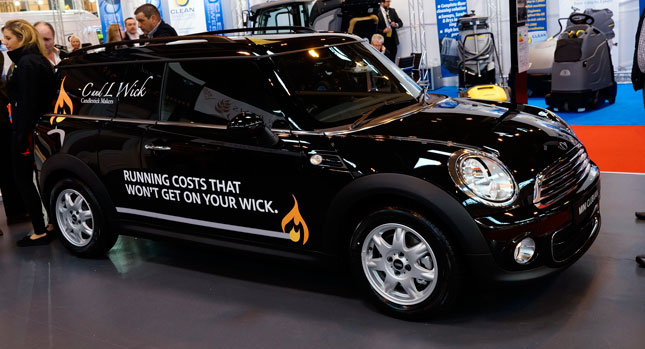To say the 2013 Mini Clubvan hasn’t enjoyed a good reception in the United States would be a major understatement. In fact, Mini has sold only 50 units since the Clubvan launched early this year. As a result, the BMW-owned carmaker has withdrawn the model from the market.
There are two major causes for the failure of the Clubvan in the U.S. The most important is undoubtedly the so-called “chicken tax”, which consists of a 25 percent tariff on any light truck imported to the United States. Considering the Mini Clubvan is an expensive vehicle even without the tax – as it is a premium van – the poor sales are no longer a puzzle.
Derived from the Mini Clubman small wagon, the Clubvan has the rear side windows blanked out and the rear seat removed. It retains the Clubman’s third side door, however, as well as the vertically split rear doors.
According to Nathalie Bauters, Mini Communications Manager at Mini USA, the decision to withdraw the Clubvan is due to “relatively low demand and the effect of an excessive 25-percent tax on vehicles for commercial use”. Bauters added that the Clubvan has been successful in other markets worldwide, especially in countries where there are tax advantages on small commercial vehicles.
Reading Bauters’ comments, one can’t help but wonder whether the “chicken tax” was something the management at Mini USA hadn’t heard about or maybe they thought a 25-percent tax wouldn’t affect Clubvan sales – a very expensive van for its limited cargo space.
The “chicken tax” was imposed in 1963 by U.S. president Lyndon B. Johnson in response to tariffs placed by France and West Germany on U.S. chicken. Among other things, the tax was aimed at preventing Volkswagen and other European carmakers from competing with U.S.-made smaller commercial trucks.
By Dan Mihalascu
Story References: Green Car
PHOTO GALLERY













